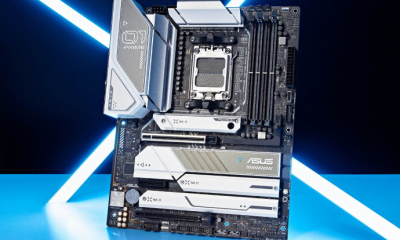Gaming
Benefits of Microtransactions for Online Gaming
Online gaming has experienced a significant transformation in recent years, and one of the key drivers of this evolution is the introduction of microtransactions. This article aims to explore the benefits that microtransactions bring to the world of online gaming, examining their definition, function, economic impact, role in enhancing gaming experience, their importance in free-to-play games, and their future implications.
Understanding Microtransactions
Definition and Function of Microtransactions
Microtransactions, also known as in-app purchases or virtual goods, refer to small transactions within a game that allow players to acquire additional content or features. These transactions typically involve the use of real or virtual currency. A huge microtransaction is the CSGO Case opening that enables gamers to enhance their gameplay experience or access exclusive items. Microtransactions can take different forms, such as purchasing cosmetic items, unlocking new levels, or obtaining in-game currency.
When it comes to microtransactions, the possibilities are endless. Players can choose to spend their hard-earned money on a variety of virtual items that can enhance their gaming experience. For example, they can purchase new character skins to customize their in-game avatar, unlock powerful weapons or abilities that give them an edge in battles, or even buy virtual real estate to build their own virtual empire. The options are vast, and game developers are constantly coming up with new and exciting content for players to indulge in.
One of the key functions of microtransactions is to provide players with a sense of progression and personalization. By allowing players to purchase additional content, microtransactions give them the ability to tailor their gaming experience to their liking. This sense of control and customization can greatly enhance player engagement and satisfaction.
The Evolution of Microtransactions in Gaming
The concept of microtransactions gained traction with the rise of mobile gaming, where developers recognized the potential for monetization through small-scale purchases. As smartphones became more powerful and accessible, mobile gaming exploded in popularity, creating a massive market for microtransactions. Players were willing to spend small amounts of money to enhance their gaming experience, and developers saw this as an opportunity to generate revenue.
Over time, the prevalence of microtransactions expanded beyond mobile platforms to include console and PC gaming. This shift was driven by the growing demand for personalized experiences and an increasing acceptance of microtransactions as a viable revenue model for game developers. As gamers became more accustomed to the idea of spending money on virtual items, developers started incorporating microtransactions into their games across different platforms.
With the evolution of microtransactions, game developers have also become more creative in their approach. They have started implementing various strategies to entice players to make purchases. Some games offer limited-time exclusive items that create a sense of urgency, while others use a “freemium” model, where the game itself is free to play but offers additional content for purchase. These strategies not only generate revenue but also keep players engaged and coming back for more.
However, the rise of microtransactions has not been without controversy. Some players argue that microtransactions create an unfair advantage for those who are willing to spend more money, leading to a pay-to-win scenario. Others feel that microtransactions can be exploitative, especially when they target vulnerable players, such as children, who may not fully understand the value of money. These concerns have sparked debates within the gaming community and have prompted discussions about the ethics and regulation of microtransactions.
In conclusion, microtransactions have become an integral part of the gaming industry, offering players the opportunity to enhance their gaming experience through small-scale purchases. As the gaming landscape continues to evolve, it will be interesting to see how microtransactions further shape the future of gaming and how developers strike a balance between monetization and player satisfaction.
The Economic Impact of Microtransactions
Revenue Generation for Game Developers
Microtransactions have become a reliable source of revenue for game developers. By offering optional content for purchase, developers can generate additional income beyond the initial purchase price of the game. This revenue stream enables the sustainable development and support of a game, allowing developers to invest in updates, bug fixes, and new content, ultimately benefiting the gaming community as a whole.
In fact, the introduction of microtransactions has revolutionized the gaming industry’s business model. In the past, game developers relied solely on the sale of physical copies or digital downloads to generate revenue. However, with the advent of microtransactions, developers now have the opportunity to continue earning money long after the initial release of a game.
These additional funds allow developers to allocate resources towards improving the gaming experience for players. They can hire more staff, invest in advanced technologies, and conduct extensive research and development to create innovative features and gameplay mechanics. As a result, gamers can enjoy a more immersive and engaging experience, with regular updates and improvements that keep the game fresh and exciting.
Value for Money for Gamers
Despite concerns about the potential for microtransactions to exploit players, many gamers find value in these transactions. The ability to purchase additional content or features allows players to customize their gaming experience to suit their preferences. Moreover, for gamers who invest significant time in a particular title, microtransactions can provide a sense of progression and achievement by unlocking exclusive rewards and enhancing skill development.
For example, imagine a player who has dedicated countless hours to mastering a game. Through microtransactions, they can unlock special character skins, unique weapons, or powerful abilities that showcase their dedication and skill. These exclusive rewards not only provide a sense of pride and accomplishment but also enhance the overall gameplay experience.
Furthermore, microtransactions can offer players a way to support their favorite game developers directly. By purchasing optional content, gamers can contribute to the financial success of the developers and show their appreciation for the hard work and creativity that goes into creating a game. This direct support can help ensure the longevity of the game and encourage developers to continue delivering high-quality content.
It is important to note that microtransactions are not mandatory for enjoying a game. They are designed to provide additional options and enhancements for those who choose to engage with them. Players who prefer a purely skill-based progression system can still enjoy the game without feeling pressured to make additional purchases.
In conclusion, microtransactions have had a significant economic impact on the gaming industry. They have provided game developers with a sustainable revenue stream, enabling continuous development and support for games. Additionally, gamers have found value in microtransactions, as they offer customization options and a sense of progression. When implemented responsibly and ethically, microtransactions can contribute to the growth and success of the gaming community as a whole.
Enhancing Gaming Experience through Microtransactions
Customization and Personalization
Microtransactions empower players to personalize their characters or game environments, offering a sense of uniqueness and creativity. Whether it’s purchasing new outfits, skins, or decorative items, these transactions foster a sense of ownership and self-expression within the gaming community. Additionally, the revenue generated from microtransactions often supports the development of new customization options, ensuring a continuous flow of fresh content for players to enjoy.
Progression and Skill Enhancement
Microtransactions can enhance the gaming experience by providing opportunities for skill development and progression. Some games offer boosts or power-ups that can accelerate a player’s progress in a game. While this may be viewed as a potential imbalance, it can also benefit players who have limited time or prefer a more accelerated path to achieve their goals. By offering these options, developers cater to a broader range of player preferences and play styles.
The Role of Microtransactions in Free-to-Play Games
Sustaining Development and Updates
Free-to-play games heavily rely on microtransactions to sustain ongoing development and provide regular updates. Since these games are available to play at no cost, microtransactions serve as a means to monetize the player base without impacting accessibility. The revenue generated from microtransactions is essential for developers to continually improve the game, address community feedback, and introduce new content.
Balancing Free Access and Profitability
The challenge for free-to-play games lies in finding the delicate balance between providing an enjoyable gaming experience for all players, regardless of their willingness to spend, and ensuring the game remains profitable. Game developers must strike a fair balance between rewarding paying players while also providing meaningful gameplay for those who choose not to engage in microtransactions. This balance not only preserves the integrity of the game but also fosters a positive and inclusive gaming community.
The Future of Microtransactions in Online Gaming
Predicted Trends and Developments
Looking ahead, microtransactions are likely to continue evolving in response to the ever-changing gaming landscape. With advancements in technology, we can expect more immersive and interactive experiences that further enhance the value proposition of microtransactions. Developers will strive to create innovative and engaging content, optimizing the potential of these transactions to provide ongoing revenue and enrich the overall gaming experience.
Potential Challenges and Solutions
While microtransactions offer undeniable benefits, they also face challenges and criticisms. Concerns such as pay-to-win elements, excessive monetization, or the encroachment on gameplay integrity need to be addressed to maintain a positive gaming environment. Stricter regulations and transparent practices can help foster trust and ensure that microtransactions enhance rather than hinder the gaming experience.
As the world of online gaming continues to evolve, microtransactions will play an integral role in shaping player experiences. By understanding the benefits they bring, from revenue generation to enhanced customization and personalization, we can appreciate their importance in sustaining the development of games and fostering a vibrant gaming community. As technology advances and industry practices refine, the future of microtransactions holds the potential to further revolutionize the online gaming landscape.


















